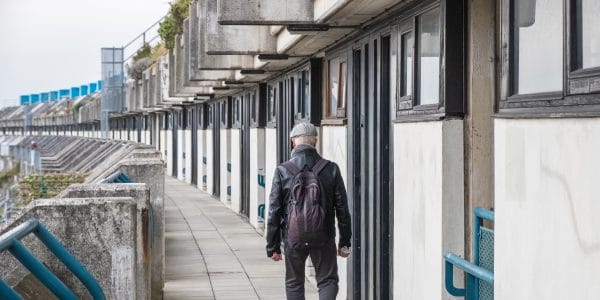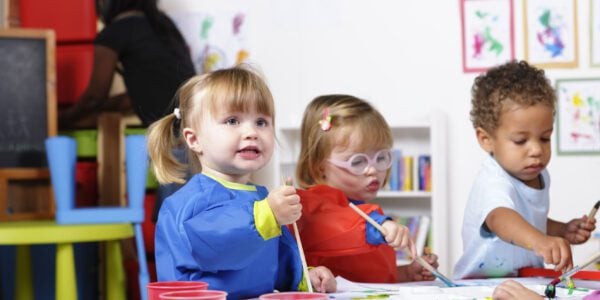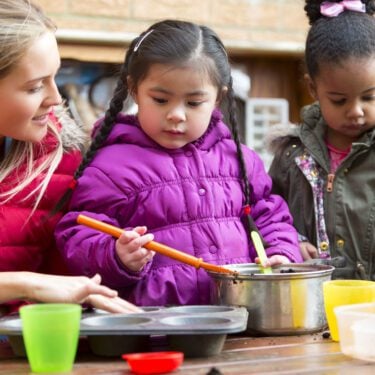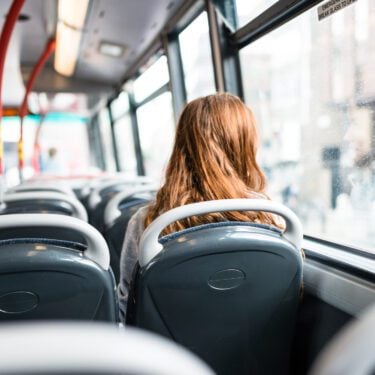

04/05/21
6 min read
Immigration has become one of the most important issues for British people, particularly in the years leading up to the EU referendum.
As part of our new series on Well-being, people and places, Peter Howley (Professor of Economics and Behavioural Science at the University of Leeds) and Mirko Moro (Associate Professor in Economics at the University of Stirling) explain how the relationship between immigration and people’s subjective, as opposed to economic, well-being can help us better understand why.
Increasing public concern with immigration coincides with rising numbers of people moving to the UK for study or work, especially after the 2004 EU accession. A natural question to ask is why is immigration a topic of such concern for many? The typical reasons cited revolve around job losses and pressure on public services. Thanks to the availability of high-quality local-area data on immigration flows and labour market statistics, economists have extensively studied the economic impacts associated with immigration. Studies from around the world, including the UK, show that immigration has relatively benign impacts on wages, employment and unemployment outcomes for existing residents.
If we look beyond simplistic models these outcomes are consistent with economic theory – immigrants earn money and spend it on nationally produced goods and services, ultimately stimulating the economy. Foreign-born workers also tend to complement rather than compete against UK-born workers, which may have other indirect positive impacts. As an illustration, many immigrant workers specialise in tasks (e.g. childcare and support tasks on a construction site) which may encourage those born in the UK to move to and/or specialise in higher paid tasks. As the pandemic has highlighted, many people born outside the UK are key workers providing essential social services and immigrants also make a significant contribution to innovation, as exemplified by the teams responsible for the development of COVID-19 vaccines.
Another concern often raised is that migrants may increase pressure on public services, such as the NHS, while benefiting from the welfare system. This worry is also misplaced as migrants, who have acquired education elsewhere, tend to be younger and healthier than much of the UK-born population. Hence, they are net contributors to the fiscal budget. Of course, migrants may be net contributors to the public purse but if government policy reduces per capita expenditure on public services over time, then natives may perceive migrants as restricting their own access to public services.
Going beyond standard economic measures
Our project on immigration and well-being moved away from the study of the ‘objective’ economic effects of immigration, towards investigating the link between changes in the number of people born outside of the UK living in local areas and indicators of subjective well-being, such as mental health and life satisfaction. We proposed that immigration may be a source of psychological distress for some people irrespective of the actual positive economic benefits. This could occur if migrants are perceived as a labour market threat or a burden for the fiscal budget, irrespective of whether this is true or not. In sharp contrast to the rich and varied literature concerned with economic outcomes, comparatively little evidence is available relating to the impact of immigration for subjective indicators of well-being.
The methodological approach in this study involved spatially linking the UK Household Longitudinal Study which records individual’s self-reported well-being over time with information from the Office for National Statistics (ONS), relating to estimated numbers of people born outside of the UK living in local authority areas in England, for each year between 2000 and 2017. This enabled us to identify the relationship between immigration and subjective well-being solely by looking at how the subjective well-being of the same individuals, living in the same regions, changes over time in response to changes in the number of foreign-born individuals living in their local authority area.
The first measure of subjective well-being used in this this study was an index built using the General Health Questionnaire (mental health), which includes measures of anxiety, social dysfunction and general happiness. Some examples of questions used to construct this index are: ‘Have you recently felt unhappy or depressed?’ Or: ‘Have you recently lost much sleep over worry?’ And: ‘Have you recently been able to enjoy your normal day-to-day activities?’. The second measure captures ‘life satisfaction’, and it is based on responses to the following question: ‘How dissatisfied or satisfied are you with life overall?’.
The results from the project illustrate that, for the UK-born population as a whole, higher immigration seems to have a small estimated negative impact on mental health but this estimated relationship is not significant when it comes to life satisfaction. Looking beyond these average estimated population impacts, there appears to be certain sub-groups where the estimated effects are negative and much more notable. These groups include older respondents (those aged 60+), those with lower incomes, no formal educational qualifications or without a job. It is worth noting that these well-being differences may have concrete consequences. For instance, increased anxiety may have found expression in the recent UK referendum on EU membership, where older or lower-income voters tended to be more in favour of Brexit.
What can explain these findings: perception vs reality?
Media coverage, political rhetoric and the recent targets aimed at reducing net migration to ambitiously low numbers can all contribute to the perception of migrants as an economic threat. This perceived threat may be more apparent for some groups when the economy struggles, as they are more likely to see themselves as in direct competition with migrants during downturns. In support of this hypothesis, any negative estimated impact of immigration was much more prominent when the overall economic activity was slowing down or contracting rather than booming.
‘Us’ vs ‘them’
The project explored other channels, related to personality and identity that could explain why some groups feel negatively impacted when faced with inflows of migrants into their local area. Specifically the project drew on identity theories formulated in sociology, psychology and more recently economics, which posit that people assign themselves and others into social categories, or ‘in-group’ (us) and ‘out-group’ (them), based on shared social identities and prescribed behaviours. As discussed previously, immigration was found to be negatively related with the self-reported well-being of UK-born residents, but conversely, this study found evidence that immigration enhances the subjective well-being for existing residents born outside the UK. One possible explanation for these differences is that for residents born outside the UK, migrants may be more likely to be seen as an ‘in-group’, as opposed to a competing ‘out-group’.
These patterns are confirmed by more direct analysis. Respondents in the UKHLS are asked to choose whether they see themselves as ‘English only’, ‘British only’, or both. Findings suggest that the negative estimated impacts of immigration, both in terms of mental health and life satisfaction, is concentrated on those who self-identify as English as opposed to British (or English and British). At the same time, no meaningful change in the self-reported well-being of those who feel ‘British only’ or ‘both’ was observed. If anything, there is some evidence of migrants adding to the life satisfaction of those who identify as ‘British only’. One explanation is that migrants may be more likely to be seen as a competing ‘out-group’ for those who identify as English as opposed to British. This is because we know from survey research that people who identify as English place a greater weight on ancestry as a criterion for national belonging.
This research in relation to national identity was supplemented by looking at the degree to which the relationship between immigration and subjective well-being was shaped by underlying psychological dispositions. Any negative estimated impact of immigration was found to be much more pronounced for UK-born individuals who consider their ethnic or racial background as important to their ‘sense of who they are’, those who report a low openness score and those less prepared to take risks in trusting strangers (particularised trust). On the other hand, immigration appears to be beneficial for those individuals who score high on the ‘openness’ and ‘trust towards strangers’ personality scales.
Challenges for policymaking
Findings from this project suggest that assessing the overall population-level impact of the relationship between immigration and subjective well-being is not very informative as it masks considerable differences across groups. For some groups, such as those who are older, less well-off, with comparatively lower education levels, and/or those who identify as English as opposed to British, immigration can be detrimental when it comes to their self-reported well-being, despite the estimated positive economic benefits. Such negative impacts for certain groups are perhaps understandable given the disconnect between media coverage and political rhetoric with the actual scale, nature and impact of immigration.
Unfortunately, if specific cohorts of the population feel negatively impacted, then this may pose challenges for the successful integration of migrants and those born in the UK in certain communities. Recognising this, we suggest that tackling misleading stereotypes (such as “job-stealing immigrants”) and appealing to ‘national self-interest’ motives by drawing people’s attention to the economic and social contribution of migrants (e.g. to an ageing society and COVID-19 relief efforts) may be an effective strategy for lessening the negative impact of immigration for some people’s sense of overall well-being. Of course, facts alone do not change minds. Information would need to be combined with more profound and constructive engagement with the public, as evidenced by initiatives such as the national conversation on immigration led by British Future and Hope Not Hate.
About the authors
Peter Howley is Professor of Economics and Behavioural Science at the University of Leeds, UK. His research is at the interface between economics, psychology and sociology. His areas of expertise are wide-ranging and include the economics of happiness, nudge theory, social identities, environmental and natural resource economics and farmer behaviour.
Mirko Moro is Associate Professor and Head of the Division of Economics, Stirling Management School, University of Stirling. In his research, he focuses on how individual decision making, health and wellbeing are affected by public policies and environmental changes. He is interested in employing quasi-experimental designs on survey and administrative data to infer causal patterns.


















































